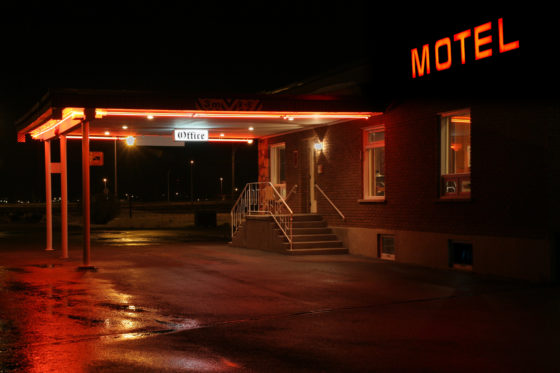Last spring, a B.C. motel worker was assaulted while working alone at night. Employers have specific responsibilities when it comes to lone worker safety.

Photo credit: iStock.com/ImageegamI
In May 2019, a worker was assaulted, tied up, and robbed while working alone at night at the front desk of a Victoria motel. To prevent others from experiencing this type of traumatic incident, safety advocates are reaching out to employers about their responsibilities for protecting lone workers.
Recently I spoke with Lorne Scarlett, a WorkSafeBC industry specialist for Tourism and Hospitality, about this issue.
“Some of the smaller properties — the ‘mom and pop’ motels — are where we’re seeing more working alone issues, especially those in rural areas,” he says. “These properties are less likely to have policies in place.”
Safety measures for protecting lone workers
Each hotel or motel with staff who work alone is different, so it’s important that employers identify the hazards for their unique workplace. Then they need to assess the risks and implement a system to minimize the risks to workers. This includes developing policies and procedures, such as checking the well-being of workers at specific time intervals.
There are also specific requirements when you have people working alone late at night, including developing written procedures for handling money, and having video surveillance.
Lorne suggests these additional safety solutions for hotel and motel operators:
- Work with your local police branch. Find out if there’s been criminal activity in your area.
- Post a “No cash on site” sign. (Lorne says many hotels no longer accept cash payments.)
- Make sure all workers are trained and well supervised. They need to know what to do if something goes wrong.
- Start locking the doors, especially in small, rural locations. This gives you a chance to observe people before you decide to open the door.
- Consider how often you have guests checking in between 11 p.m. and 7 a.m. Check your reservations and stay in touch with people about late check-ins.
- Make sure your lobbies are well-lit and that you can see into them from the street. Keep the outside of your building well-lit as well.
Learn more
For more on what employers can do to protect staff working alone or late at night, see Working Alone: A Handbook for Small Business. Here are some other references you may find helpful:
- Keeping lone workers safe, a May 2019 WorkSafeBC announcement
- Reducing risk for lone retail workers late at night, an August 2019 WorkSafeBC announcement
- Section 4.21, Procedures for checking well-being of worker, from the Occupational Health and Safety Regulation
- Security in your workplace, from go2HR, the human resources association of B.C.’s tourism and hospitality industry)
- Looking out for lone workers’ safety, a Speaking of Safety blog post from 2018


